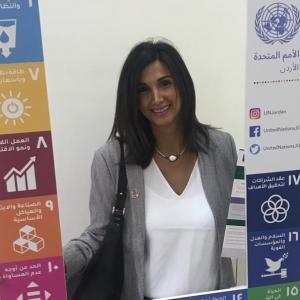An innovative system for Monitoring and Early Warning of RPW Date infestation
28 May 2024
Date production is a major contributor to the Jordanian agricultural sector's income, accounting for around a hundred million Jordanian Dinars of the entire agricultural income. Annually, the production of dates amounts to around 33,000 tonnes.
The Food and Agriculture Organization of the United Nations (FAO) is holding a Training of Trainers (ToT) Workshop on the Susa-Hamra App: a digital system for monitoring and early warning for Red Palm Weevil (RPW), from May 28 to 30 in Amman, with the presence of representatives of the ministries of agriculture in the countries participating. Under the framework of the FAO RPW eradication “GCP /RNE/012/MUL programme, a three-day workshop is organized by the FAO Regional Office for the Near East and North Africa (RNE), FAO's Plant Production and Protection Division (NSP), and in collaboration with the Jordanian Ministry of Agriculture. The workshop will be attended by 50 participants from 6 NENA countries, including Egypt, Iraq, Jordan, Lebanon, Palestine, and Syria. The workshop aims to strengthen the technical capacities of the participating officials on RPW visual inspection protocols, trapping techniques, and data collection using the SusaHamra app. In addition, participants will acquire knowledge on data validation using the PlantVillage Platform and employ the RPW platform for mapping and analysis.
Date production is a major contributor to the Jordanian agricultural sector's income, accounting for around a hundred million Jordanian Dinars of the entire agricultural income. Annually, the production of dates amounts to around 33,000 tonnes. Red Palm Weevil is a key quarantine pest that represents a threat to the date palm sustainable production and is negatively impacting farmer livelihoods, and the environment not only in Jordan but in most NENA countries. Weak quarantine measures and challenges in the early detection of RPW-infested plant materials have contributed to its rapid spread in the NENA region” " stated Eng. Nabil Assaf, the FAO Representative in Jordan.
Eng. Ayman Al-Oran, Assistant Secretary-General for Plant Wealth at the Ministry of Agriculture, added that the Red Palm weevil was recorded for the first time in Jordan in 1999, and during the last ten years, its infections have increased steadily. The Ministry recognized the necessity of formulating a comprehensive national strategy to halt the spread of the red palm weevil and limit its economic damage. The plan was developed for three years and aimed at using the available innovative technologies for early detection and control of RPW, with the participation of stakeholders and in cooperation with experts from the FAO and the private sector. The national plan will target the Jordan Valley, Azraq, Aqaba, and Al-Safi regions.
Mr. Thaer Yaseen, the regional officer of plant protection, at FAORNE, stressed that RPW has not been effectively managed despite efforts and resources provided by the authorities in NENA countries. There was broad recognition that the risk of RPW cannot be addressed only at the national level and that its challenges must be addressed urgently at national regional, and global levels. Also, enhanced solidarity and cooperation between countries and regions are required to harmonize the monitoring and control strategies.
FAO developed the regional Trust Fund program for RPW eradication in the NENA region as one of the most affected regions. The RPW eradication project “GCP/RNE/012/MUL” is a five-year project that aims to contribute to the ongoing efforts for the eradication of the RPW in the Near East and North Africa (NENA) region. The project is designed to develop the necessary strategies, plans, tools, and technologies to assist NENA countries in sustainably managing the RPW through three major thematic areas: i) research; ii) capacity development; and iii) transfer of knowledge and technology.
“FAO designed a new monitoring system that includes a mobile app for field collecting data through visual inspection and checking pheromone traps, in addition to a cloud platform for processing, analyzing, and mapping the collected data,” said Mr. Maged Elkahky, Agricultural Officer, FAO NSP. He added that the beta version of the mobile application "Susa-Hamra App” was released at the end of 2018, and the field use of the system was officially launched in December 2023. The system was presented and validated in the Maghreb countries in a previous workshop. Tunisia has currently adopted the new digital tool as a national system to monitor and survey the RPW in the affected areas.
Susa-Hamra App and the platform mark a significant step forward in the fight against RPW and support the officials and stakeholders in making informed management decisions.




